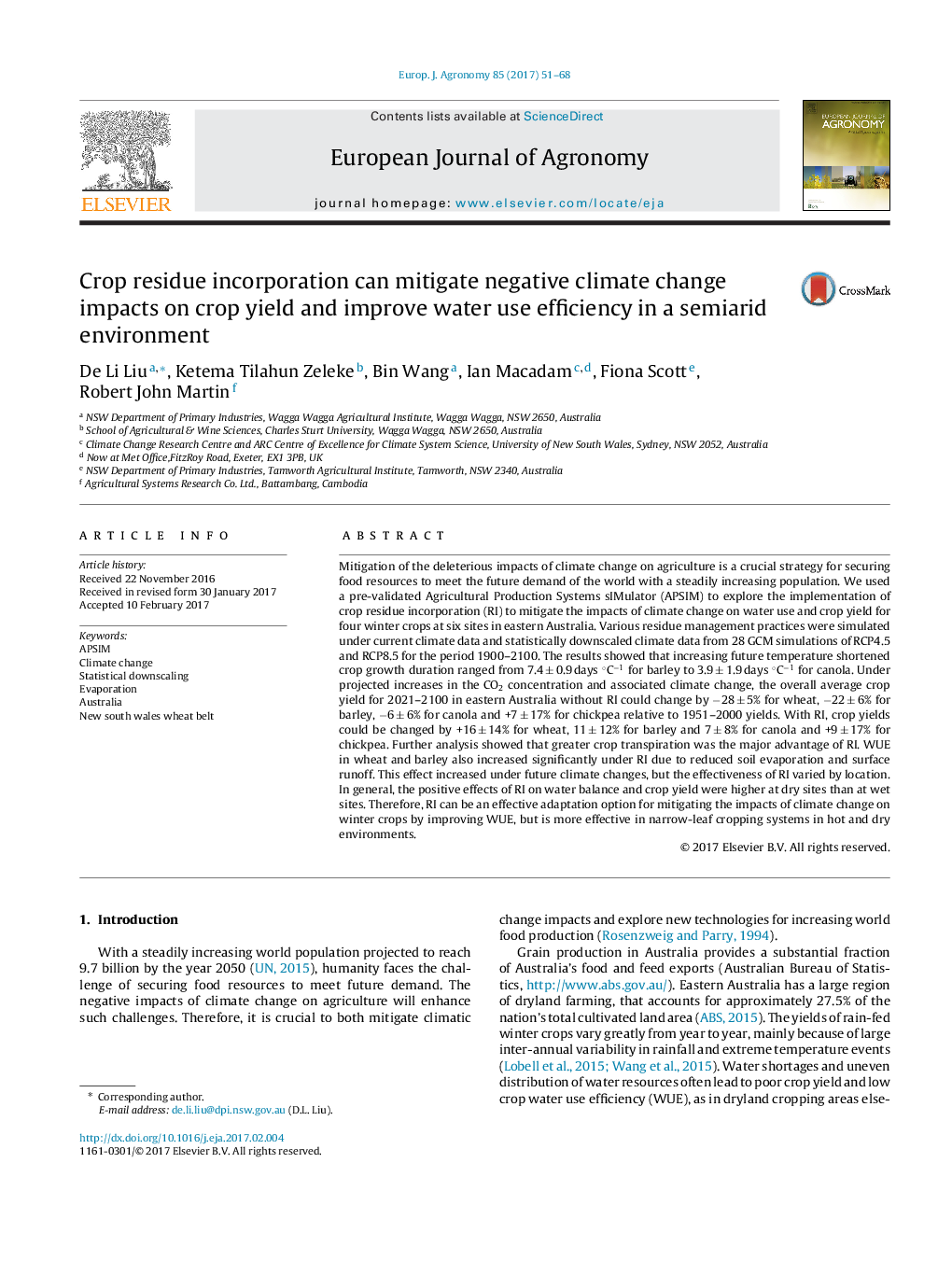ترجمه فارسی عنوان مقاله
ترکیب محصولات باقیمانده می تواند منافع تغییرات اقلیمی منفی را بر عملکرد محصول کاهش دهد و بهره وری مصرف آب را در یک محیط نیمه خشک بهبود بخشد
عنوان انگلیسی
Crop residue incorporation can mitigate negative climate change impacts on crop yield and improve water use efficiency in a semiarid environment
| کد مقاله | سال انتشار | تعداد صفحات مقاله انگلیسی |
|---|---|---|
| 98829 | 2017 | 18 صفحه PDF |
منبع

Publisher : Elsevier - Science Direct (الزویر - ساینس دایرکت)
Journal : European Journal of Agronomy, Volume 85, April 2017, Pages 51-68

